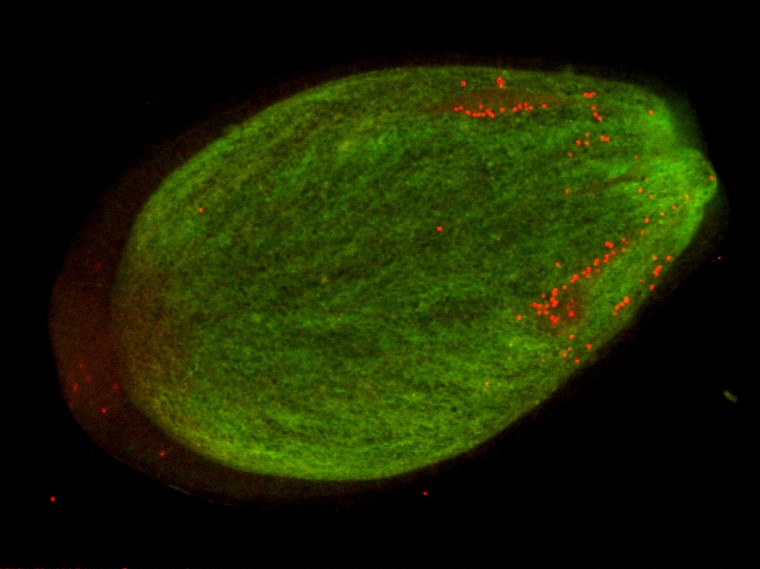
Global S&T Development Trend Analysis Platform of Resources and Environment
| Scientists successfully develop ‘heat resistant’ coral to fight bleaching | |
| admin | |
| 2020-05-14 | |
| 发布年 | 2020 |
| 语种 | 英语 |
| 国家 | 澳大利亚 |
| 领域 | 资源环境 |
| 正文(英文) | A team of scientists has successfully produced in a laboratory setting a coral that is more resistant to increased seawater temperatures. The team included researchers from CSIRO, Australia’s national science agency, the Australian Institute of Marine Science (AIMS) and the University of Melbourne. “Coral reefs are in decline worldwide,” CSIRO Synthetic Biology Future Science Platform (SynBio FSP) science lead Dr Patrick Buerger said. “Climate change has reduced coral cover, and surviving corals are under increasing pressure as water temperatures rise and the frequency and severity of coral bleaching events increase.” The team made the coral more tolerant to temperature-induced bleaching by bolstering the heat tolerance of its microalgal symbionts – tiny cells of algae that live inside the coral tissue. “Our novel approach strengthens the heat resistance of coral by manipulating its microalgae, which is a key factor in the coral’s heat tolerance,” Dr Buerger said. The team isolated the microalgae from coral and cultured them in the specialist symbiont lab at AIMS. Using a technique called “directed evolution”, they then exposed the cultured microalgae to increasingly warmer temperatures over a period of four years. This assisted them to adapt and survive hotter conditions. “Once the microalgae were reintroduced into coral larvae, the newly established coral-algal symbiosis was more heat tolerant compared to the original one,” Dr Buerger said. 
The microalgae were exposed to temperatures that are comparable to the ocean temperatures during current summer marine heat waves causing coral bleaching on the Great Barrier Reef. The researchers then unveiled some of the mechanisms responsible for the enhanced coral bleaching tolerance. “We found that the heat tolerant microalgae are better at photosynthesis and improve the heat response of the coral animal,” Professor Madeleine van Oppen, of AIMS and the University of Melbourne, said. “These exciting findings show that the microalgae and the coral are in direct communication with each other. “ The next step is to further test the algal strains in adult colonies across a range of coral species. “This breakthrough provides a promising and novel tool to increase the heat tolerance of corals and is a great win for Australian science,” SynBio FSP Director Associate Professor Claudia Vickers said. This research was conducted by CSIRO in partnership with AIMS and the University of Melbourne. It was funded by CSIRO, Paul G. Allen Family Foundation (U.S.A.), AIMS and the University of Melbourne. The Buerger et al paper 'Heat-evolved microalgal symbionts increase coral bleaching tolerance' was published in Science Advances today. |
| URL | 查看原文 |
| 来源平台 | Australian Institute of Marine Science |
| 文献类型 | 新闻 |
| 条目标识符 | http://119.78.100.173/C666/handle/2XK7JSWQ/251772 |
| 专题 | 资源环境科学 |
| 推荐引用方式 GB/T 7714 | admin. Scientists successfully develop ‘heat resistant’ coral to fight bleaching. 2020. |
| 条目包含的文件 | 条目无相关文件。 | |||||
| 个性服务 |
| 推荐该条目 |
| 保存到收藏夹 |
| 查看访问统计 |
| 导出为Endnote文件 |
| 谷歌学术 |
| 谷歌学术中相似的文章 |
| [admin]的文章 |
| 百度学术 |
| 百度学术中相似的文章 |
| [admin]的文章 |
| 必应学术 |
| 必应学术中相似的文章 |
| [admin]的文章 |
| 相关权益政策 |
| 暂无数据 |
| 收藏/分享 |
除非特别说明,本系统中所有内容都受版权保护,并保留所有权利。
修改评论